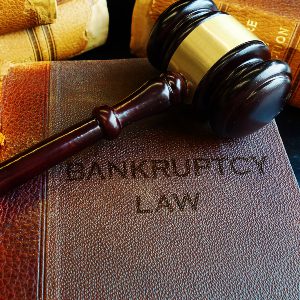Understanding the Different Types of Bankruptcy in Florida

It has been reported that over half a million Americans file bankruptcy annually. When financial hardships become too much to bear, sometimes a fresh start is necessary for a person to rebuild and do better the second time around. If you are in need of debt relief, filing bankruptcy may be a good option for you.
The Florida bankruptcy lawyers of The Law Offices of Daryl L. Jones, P.A have extensive experience helping clients understand the best options are for them concerning their financial situation. If you are considering filing bankruptcy in Florida, it is important that you understand the different types of bankruptcy and how they may affect you.
What Are the Two Types of Bankruptcy in Florida?
Filing bankruptcy is an extensive process and can overwhelm you as you navigate this difficult time in your life. Depending on the type of debt relief you are seeking, there are two different types of bankruptcy you may file for that may best suit your needs.
Chapter 13 Bankruptcy
This type of bankruptcy is consumer bankruptcy. Often referred to as restructuring bankruptcy, Chapter 13 bankruptcy does not require borrowers to sell their assets. However, the borrowers are required to restructure and consolidate their credit card debt and any other outstanding debts for the court to approve their repayment plan. With the help of a Florida bankruptcy attorney, you may be able to work out a deal with the court so you may have to pay back only a small percentage of your debt.
Chapter 7 Bankruptcy
Chapter 7 bankruptcy may be a good option for you if you are suffering from any of the following types of debt:
- Credit card debt
- Medical bills
- Personal loans
- Foreclosure of your home
When filing Chapter 7 bankruptcy, you will sell all non-exempt assets so you may be released from certain debts in return. Some examples of non-exempt assets you may be subject to sell include:
- Vacation homes
- New cars
- Valuable collections like coins or stamps
- Family heirlooms
- Valuable artwork
- Designer shoes or handbags
- Expensive clothing
- Jewelry with resale value
If you work with a bankruptcy attorney, she may be able to reach an agreement that would release you from liability for your debts without having to sell your assets.
What Are the Six Steps of the Bankruptcy Process in Florida?
One of the reasons going through bankruptcy can be so stressful for borrowers because there are several steps you must follow to properly file bankruptcy. The six steps of the bankruptcy process in Florida are:
- Pre-bankruptcy counseling
- Filing the bankruptcy petition
- Automatic stay
- Creditors’ meeting
- Debt education course
- Notice of discharge
It can be overwhelming to go through each step of bankruptcy on your own. That is why it is crucial you get the help of a professional who can ensure you follow each step while also protecting you and your interests.
Get Help From a Florida Bankruptcy Attorney
The choice to file bankruptcy is not one borrower come by easily. It can be overwhelming to go through the many meticulous steps it takes for the court to grant you bankruptcy and relief from your debt. If you are unsure what type of bankruptcy you should file, it is essential you speak with a Florida bankruptcy attorney as soon as possible.
The bankruptcy attorneys at The Law Offices of Daryl L. Jones, P.A are dedicated to helping clients understand the differences between the types of bankruptcy in Florida. Our knowledgeable legal team is proud to provide clients with the award-winning legal services they deserve. To schedule a free initial strategy session, fill out our contact form or call (305) 969-3602.
